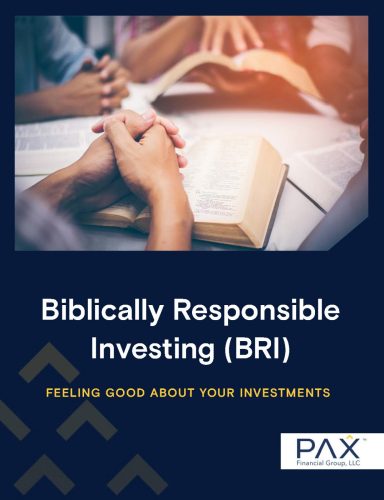Guide to Investment Management in San Antonio, TX
 Is it time to attract more financial abundance into your life? If you’ve been wondering when to seek an investment manager for financial guidance in Texas, it becomes relevant when you have enough funds to invest and build a diversified portfolio. This will differ from your family and friends, so how you go about finding proper investment support should be relative to your financial situation.
Is it time to attract more financial abundance into your life? If you’ve been wondering when to seek an investment manager for financial guidance in Texas, it becomes relevant when you have enough funds to invest and build a diversified portfolio. This will differ from your family and friends, so how you go about finding proper investment support should be relative to your financial situation.
Where, why, and how to invest are covered in this quick guide to help you protect and build your wealth with the right mindset.
 Let’s say you own a few shares of an individual stock and a long-term asset or have a relatively small amount of investment vehicles such as mutual funds and ETFs (exchange-traded funds). You can get a second opinion, as many DIYers wonder if their investment strategy is correct.
Let’s say you own a few shares of an individual stock and a long-term asset or have a relatively small amount of investment vehicles such as mutual funds and ETFs (exchange-traded funds). You can get a second opinion, as many DIYers wonder if their investment strategy is correct.
If you are ready to build and diversify your assets, you should start working with an investment manager for portfolio management.
While there are numerous resources about investment markets and specific investments online, many investors prefer to work with a financial advisor in San Antonio who aligns with their faith.
Check out our newest, complimentary eBook, Biblically Responsible Investing (BRI: Feeling Good About Your Investments.
What is Investment Management?
Why Getting Professional Investment Management Helps

There are many reasons to consider working with an investment manager, including:
- Time: Modern investment markets can be highly volatile, requiring constant monitoring to ensure that investment conditions align with your investment assumptions. A professional investment manager has the time to monitor the markets daily, which most investors lack.
- Expertise: The significant number of investment options available today comes with a price—it can be hard to know which is best for you in any given situation. Many investors may feel they lack the knowledge to manage their investments on an ongoing basis. Reading up on all the latest investment news and mastering the principles of investment management are tasks that many investors prefer to delegate to a financial professional.
- Experience: Even investors with significant investment and financial market expertise may not necessarily be interested in managing their own investments. This is often due to a lack of experience; it’s one thing to read about the markets and another to make investment allocation decisions regularly. If this applies to you, work collaboratively with your investment manager, offering your input while allowing the manager to do the asset allocation.
Comprehensive planning: Investors looking to receive a variety of financial planning services in addition to investment management may prefer the efficiency of working with an advisor who offers all of these services. Such services can include retirement planning, budgeting, insurance planning, debt management, etc.
Finding Investment Management in San Antonio, Texas
The Different Types of Investment Vehicles
 Modern investment markets simplify the diversification of your assets broadly across different asset classes. In addition to longstanding classes such as stocks and bonds, investors can buy mutual funds, ETFs, and other less liquid investment vehicles, like real estate, commodities, and even cryptocurrencies.
Modern investment markets simplify the diversification of your assets broadly across different asset classes. In addition to longstanding classes such as stocks and bonds, investors can buy mutual funds, ETFs, and other less liquid investment vehicles, like real estate, commodities, and even cryptocurrencies.
Some commonly traded investment vehicles include:
- Stocks (equities): Individual stocks represent an ownership interest in a publicly-traded company.
- Bonds: A bond is an obligation to repay a loan taken out by a corporation or government entity, typically in the form of periodic payments until the balance owed is paid at the bond’s maturity date.
- Mutual funds: These investments offer diversification by allowing investors to purchase shares that give them prorated ownership in the fund’s overall portfolio, including hundreds of different stocks and bonds.
- ETFs: Exchange-traded funds are typically linked to an index such as the S&P 500 or NASDAQ. Unlike mutual funds, which can generally only be bought at the close of trading, they can be traded throughout the day like stocks. ETFs typically take a passive approach to investing, seeking to match as closely as possible rather than outperform the results generated by the index being tracked.
REITs: Real estate investment trusts offer investors the opportunity to invest in a security that provides interest payments based on the income generated by the properties held within the rate. REIT shares will go up or down in value based upon the interest payments they support and perceptions of the increasing or decreasing value of the property held by the REIT.
How to Choose the Right Investment Manager For You
The Benefits of Working with an Investment Manager
 Modern investment markets are both highly complex and prone to significant volatility. As a result, there are several benefits to working with an experienced Texas financial advisor with the training and expertise to manage your money across various market conditions. These include:
Modern investment markets are both highly complex and prone to significant volatility. As a result, there are several benefits to working with an experienced Texas financial advisor with the training and expertise to manage your money across various market conditions. These include:
- Selecting realistic investment objectives: An investment manager can provide you with a detailed analysis of the risks and rewards of various investment approaches. Many of them also offer access to sophisticated financial modeling software which can calculate the percent likelihood a given portfolio will achieve its objectives based on the historical performance of similar portfolios. These projections may run hundreds or even thousands of simulations to generate a success probability percentage, known as a Monte Carlo simulation.
Suppose your percentage is below your comfort zone. In that case, you can work with the manager to make changes to increase it by adjusting your investment strategy to aim for higher returns, increasing the amount you invest or reducing your ultimate savings goal.
- Building a portfolio: Selecting holdings for an investment portfolio requires significant knowledge of investment theory and specific securities, whether individual or pooled, such as mutual funds and ETFs. An investment manager can help you select the asset allocation percentages between classes that best fits your investment approach and risk tolerance and the individual securities within each class.
- Investment theory knowledge: Achieving optimal investment results typically requires adhering to a strategy designed to guide an investor’s selection of specific portfolio holdings. An investment manager can utilize their knowledge of investment theory to help you find an approach that fits your financial situation.
For instance, one commonly used investment approach, Modern Portfolio Theory (MPT), focuses on optimizing the potential return for a given amount of risk. This approach can be used within the context of emphasizing growth while an investor is younger and can take on more risk while investing more conservatively over time.
- Monitoring your portfolio and market conditions: Today’s financial markets can be tumultuous, meaning that your initial investment assumptions may need to change over time. An investment manager can keep an eye on market conditions for you and help adjust your portfolio allocation as required.
Comprehensive financial planning: Some investment managers also offer financial planning services that enable you to view your investment portfolio within your overall financial goals. This type of planning can help you achieve your goals by making sure that the impact of each goal is considered within the context of your financial plan as a whole.
How to Get Started with Investment Management
The first step is to have a good idea of what you want to achieve. Your investment goals will drive your investment planning. A financial advisor can typically help with the goal-setting process and managing your assets. In doing so, they must ask questions such as:
- What are your major financial goals?
- How much do you have available to invest in them, initially and overtime?
- What is your risk tolerance?
- What are the time horizons associated with your goals, including your desired retirement timeline?
 These questions can help you establish what you hope to accomplish and evaluate your available assets for investment. Whether you plan to invest over a period or in a lump sum, it’s crucial to have a good handle on this number to set realistic goals. Work with an advisor who has access to sophisticated financial planning software. This can help demonstrate how different investment results would affect your ability to reach your goals.
These questions can help you establish what you hope to accomplish and evaluate your available assets for investment. Whether you plan to invest over a period or in a lump sum, it’s crucial to have a good handle on this number to set realistic goals. Work with an advisor who has access to sophisticated financial planning software. This can help demonstrate how different investment results would affect your ability to reach your goals.
After establishing your goals and how much funds you have available to fund them, you are ready to start the investment selection process. Here, too, an investment manager can provide guidance based on their experience and expertise, helping select your initial portfolio allocation and adjusting it as needed on an ongoing basis.
PAX Financial Group, LLC is a San Antonio, Texas investment management firm that provides comprehensive advisory services designed to offer our clients assistance at every step of the investment process. From setting goals to building and managing an investment portfolio created to reach those goals, we can help you sort through financial complexities to live the life you want.
Contact us now for a complimentary, no obligation consultation to learn more about our fee-only financial advisor services. Start planning tomorrow, today!

